In 2016, Donald Trump entered politics from business, so he was still skeptical and hesitant. Now, he has the experience of a presidential term, strong unity in the Republican Party and a "rose-paved" path in Congress .
That is the opinion of former Deputy Minister of Foreign Affairs of Vietnam Pham Quang Vinh - Ambassador Extraordinary and Plenipotentiary of Vietnam to the US from November 2014 to June 2018 - when analyzing with Giao Thong Newspaper reporter about Donald Trump's victory and commenting on the upcoming "Donald Trump 2.0" administration.

Looking back at the 2024 US presidential election, how do you evaluate the election process and the spectacular victory that brought Donald Trump back to the White House?
It can be said that this was a very surprising election. The surprise was not that Mr. Trump won because many people predicted this before the election, but that he won with a very large margin of electoral votes and won the majority of the popular vote, and the vote counting process was quick.
Looking back at the entire process since the election, there have been many incidents. Never before has a US election seen a major party switch candidates so close to the race. Kamala Harris replaced Joe Biden with just three months to go. Or the two assassination attempts on Trump - a very rare occurrence.
Moreover, the election polls are up and down, pulling back and forth. Up until the day before the election, the polls showed a close result and constantly reversed, unstable. The experts themselves also predicted that it would take a long time to determine the winner.
But in the end, the election results showed that Mr. Trump not only won, but won spectacularly, in both the electoral college and the popular vote.
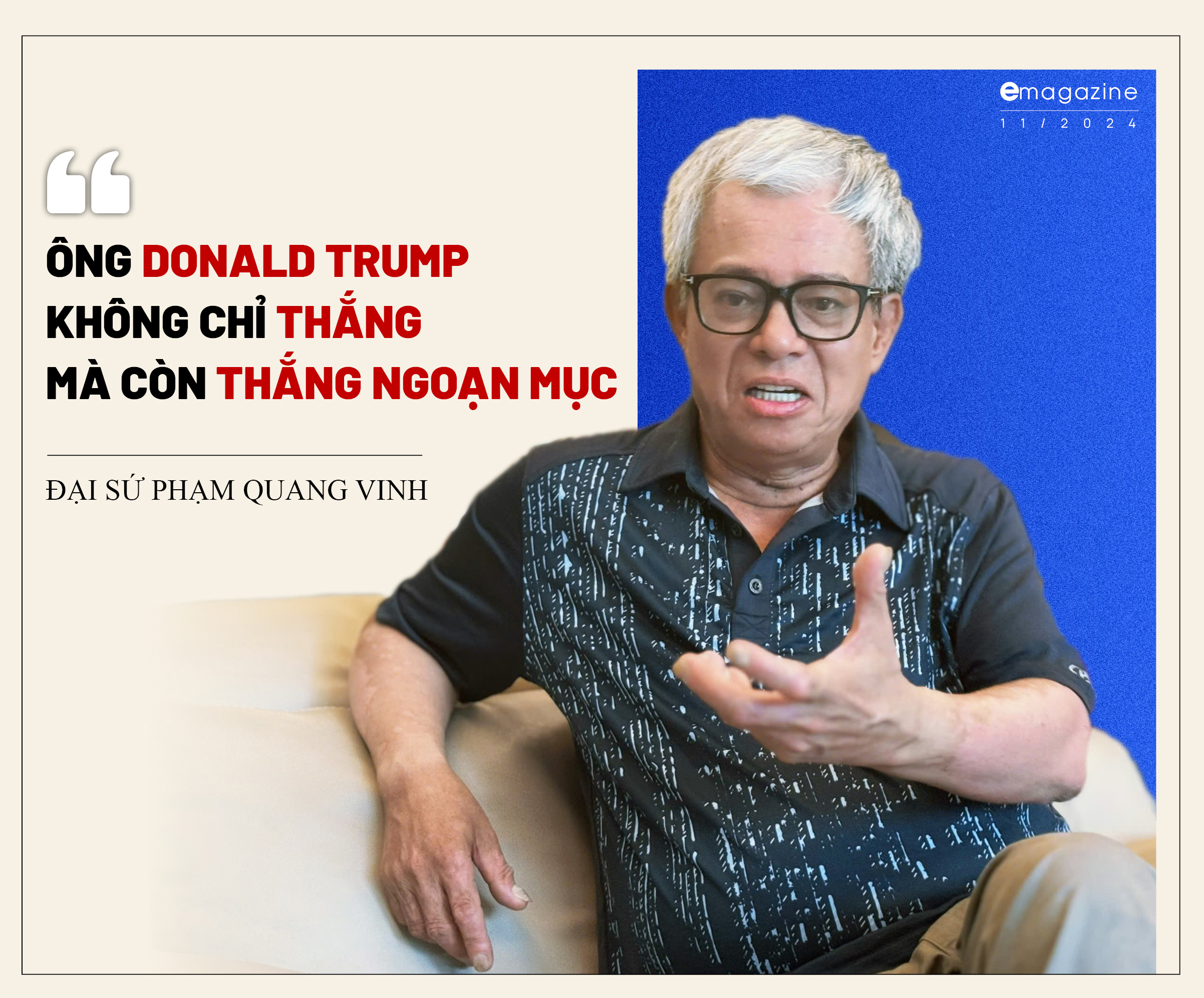
In your opinion, what made Mr. Trump win?
The biggest factor is that Mr. Trump hit the right chord. What American voters care about most is the economy , security, including border security, and jobs.
Of course, Kamala Harris also highlighted democracy, women's rights, including abortion rights, which have been improved, such as inflation being controlled, the pandemic having passed, and the economy growing at around 2%. That is a very good achievement of the Joe Biden administration. However, for many people, they still feel that the past years have been difficult economically, even more difficult than before.
Part of Mr. Trump's victory also comes from the fact that the Democratic Party is wavering and uncertain. Changing candidates "midstream", close to the election, makes it difficult for Ms. Kamala Harris to reach out to all voters, making it difficult to convey her message deeply to voters, and there is certainly a gap in Ms. Kamala Harris's coalition.
In a poll of voters, a question was asked: "How do you rate your life today, compared to the past?". The results showed that more than 70% said they felt their life was no better.
That reflects the people's desire for change, for the better. On the other hand, there are also some public opinion polls that show that people assess that during the 4 years of Donald Trump's administration, the economy has developed and created many jobs.
In addition, during the election process, each side has drastic campaign measures, focusing on both core and undecided voters.
According to research, Mr. Trump received more support from men and Ms. Kamala Harris received more support from women.
Mr. Trump is supported by rural people, people who have lost their jobs, and people with low education. Meanwhile, Ms. Kamala Harris receives support from urban people, people with higher education, and people of color, although in some places it has eroded and tilted toward the Republican candidate.
From that general picture, it can be seen that America entered the election in a context that was already divided, fragmented, and had gaps within society, gaps in income, wealth, education, employment and unemployment, race, views on abortion, gun control, etc.
In the context of such a close and tug-of-war between the two sides, whoever hits the voters' psychology and their wishes will win.
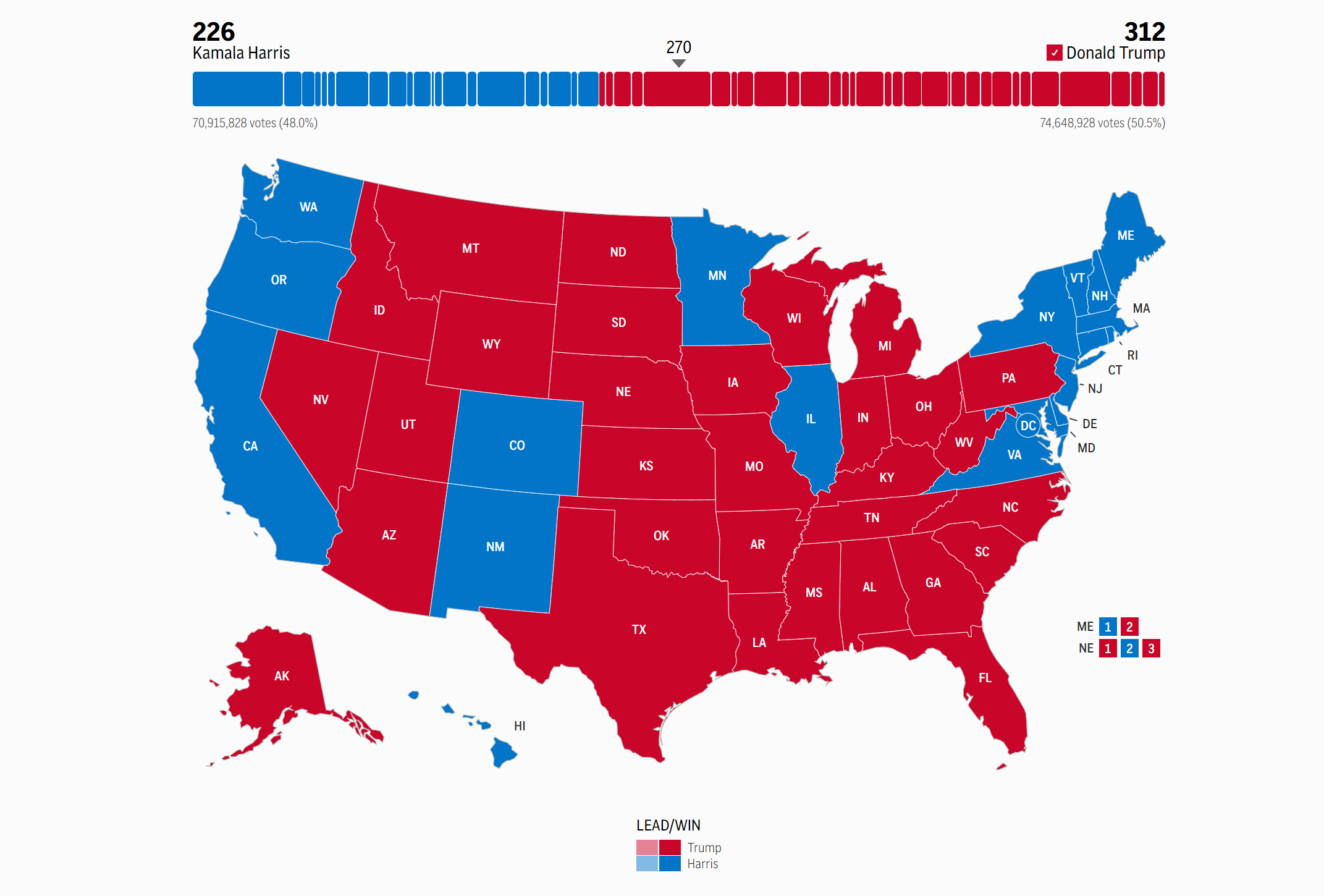
Voting results show that Mr. Trump won big in Arizona, capturing all the electoral votes of 7 battleground states (Chart: AP).
How is Mr. Trump's performance this year different from 2016, sir ?
The similarity is that Mr. Donald Trump's personality is still fierce and has many shocking statements and actions. With that personality, this year, when the assassination attempt happened, Mr. Trump still stood up, clearly showing his strong determination to act. That action received a wave of praise from the Republican Party as well as the press.
Otherwise, things are very different. In 2016, when Mr. Trump entered politics from business, very few people thought he would win.
I remember, on the morning of the election, all the polling companies and major newspapers in the US rated Mrs. Hillary Clinton ahead of Mr. Donald Trump by 70-80%. Moreover, at that time, although he was the Republican candidate, the party had not yet gathered a strong force.
But in 2024, by July, at the convention, the Republican Party had rallied around Mr. Trump and adopted the slogan "Make American great again" and his 20 major goals as the party's platform.

So, what are the advantages and challenges for Mr. Trump in the next term?
Along with the presidential election, there are also elections for the Senate, the House of Representatives and many state governors. The results so far show that the Republican Party has a huge advantage.
Not only did they turn the tables in the Senate, they also won a majority of governorships in states against the Democrats. In the House of Representatives, the vote count is not yet complete, but the Republicans also have a big advantage, with 210 seats and only three seats away from a majority in the House.
Not only did Mr. Trump win a resounding victory and gain higher voter confidence, but the Republican Party also gained an advantage in the balance of power in the United States. Certainly, in the next term, with that balance of power, Mr. Trump's decisions will be more favorable than in 2016.
However, Mr. Trump is about to enter a new term with a divided America in many areas as mentioned above. Not to mention, the world situation over the past four years has many differences. In particular, competition between major powers has increased sharply compared to when Mr. Trump was in power for the first term.
If in 2016, the strategic competition between the US and major countries, including China, had just begun, now the strategic competition is comprehensive. The world has become more unstable with many crises and conflicts in Europe (Russia - Ukraine) or the Middle East.
During his campaign, Mr. Trump made many commitments to resolve conflicts and this is the time for him to face and deal with these challenging issues.

After taking office, Mr. Trump is expected to have a policy that is very different from the strategy of the current US leader. Can you point out some of the most notable points in Mr. Trump's foreign policy in the Asia-Pacific region?
If we look at the Republican Party's election platform or Mr. Trump's statements during the election campaign, combined with the previous four years in power, we can see that Mr. Donald Trump will promote America's interests and leading role in the world.
Not just Mr. Trump, whether Republican or Democratic, whoever is President does the same. That is the general consensus in America.
Only, Donald Trump's approach will be very different from the previous administration and especially very different from Donald Trump's first term.
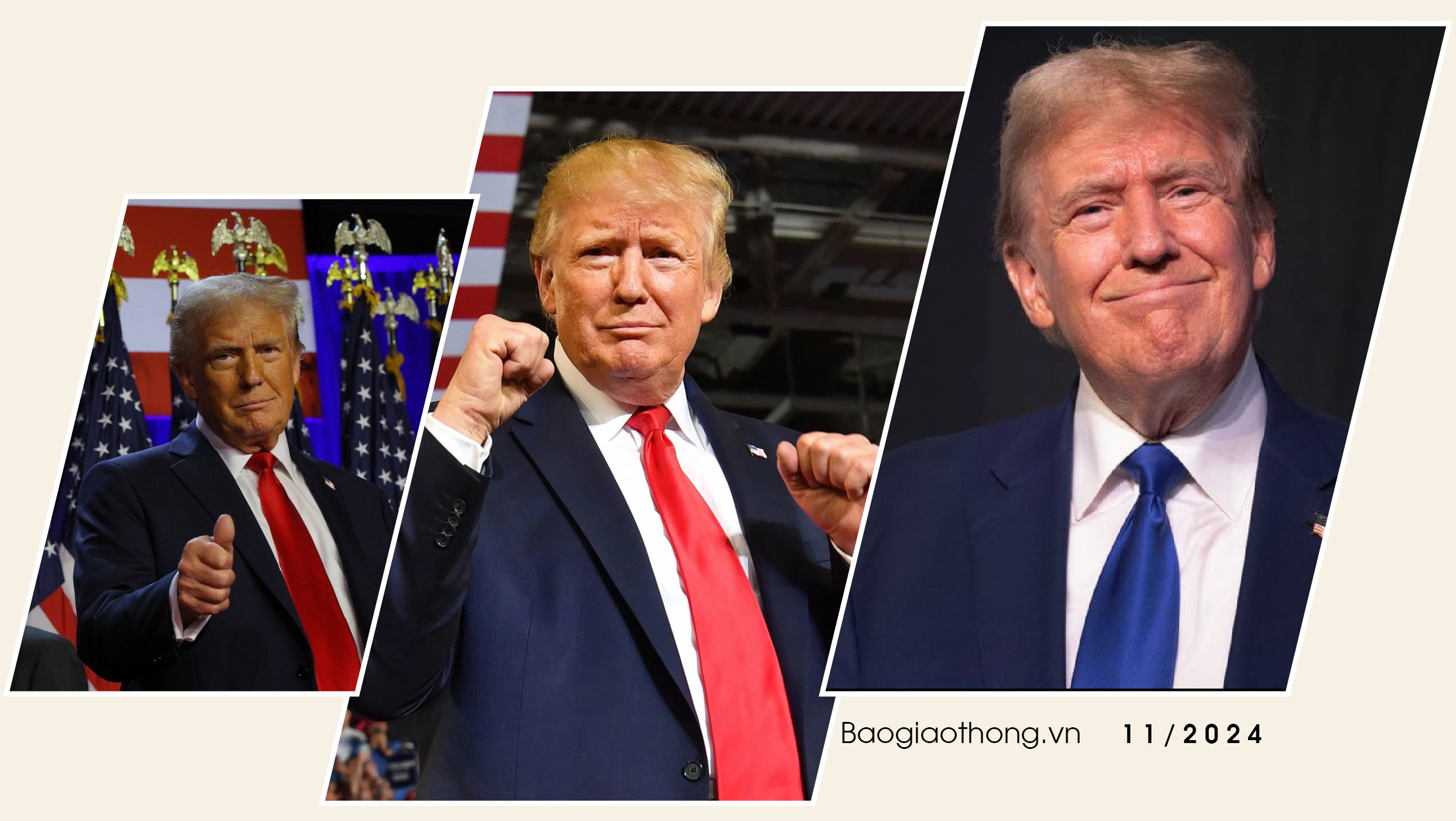
Ambassador Pham Quang Vinh commented that the United States under "Donald Trump 2.0" continues to attach importance to the Indo-Pacific region, which includes America's strategic and economic interests.
Mr. Trump will fully exploit the doctrine of America first. In relations with the world and with other countries, Mr. Trump will promote the interests of the United States, on the basis of mutual benefit and fairness, less influenced by ideological stories, going straight to the interests of the United States, especially economic, trade, investment and technological interests.
With allies and partners, the United States still needs to have relationships, but the approach must be both strategic and pragmatic. As in Europe, the North Atlantic Treaty Organization (NATO) must certainly increase its defense budget and cannot rely solely on the United States, with an expected increase in its defense budget to about 2% of GDP. South Korea is similar.
Or in the crisis in Ukraine, Mr. Trump declared that not only the US should contribute, Europe must also join hands more.
Some European Union countries such as Germany and France may have been strategic allies in the past, but when it comes to trade issues, if there are any problems, Mr. Trump also demands fairness and fair sharing.
In multilateral relations, Mr. Trump previously withdrew the US from the Paris Agreement on climate change, the Iran nuclear deal, the Trans-Pacific Partnership (TPP)... In my opinion, Mr. Trump will emphasize more bilateral relations, not multilateral relations because he believes that if the US participates, it will lose a lot.
In relations with major powers, he will continue to promote strategic competition. Particularly with US-China competition, he will emphasize more on the economic, trade, and technological fields.
The question is, in that great power competition, how will the US win over allies and partners?
Under President Joe Biden, he sees those relationships as strategic relationships to strengthen the United States. As for Mr. Trump, his general policy is pragmatic. But if you look back, he also mentioned the national security strategy, the Indo-Pacific strategy, which highlighted the important role of allies and partners.
In 2017, Mr. Trump was the first to propose the Indo-Pacific strategy. I believe that the United States under "Donald Trump 2.0" continues to attach importance to the Indo-Pacific region, which encompasses the strategic and economic interests of the United States. Mr. Trump will continue to invest in and value allies and partners in this region.
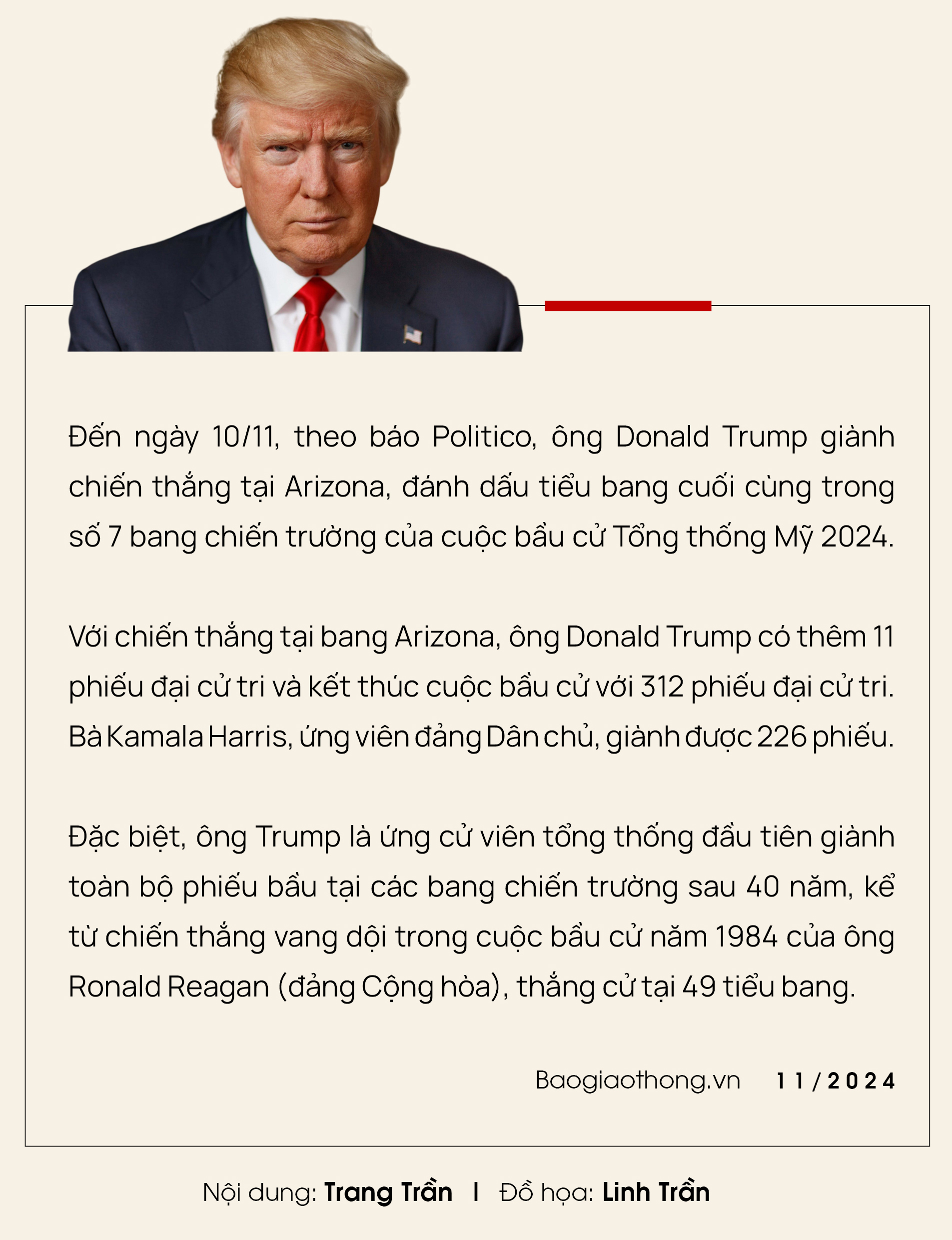
Source: https://www.baogiaothong.vn/dai-su-pham-quang-vinh-tong-thong-donald-trump-20-se-rat-khac-19224111016390982.htm



![[Photo] National Assembly Chairman Tran Thanh Man receives United Nations Secretary-General Antonio Guterres](https://vphoto.vietnam.vn/thumb/1200x675/vietnam/resource/IMAGE/2025/10/25/1761390815792_ctqh-jpg.webp)
![[Photo] Prime Minister Pham Minh Chinh and United Nations Secretary-General Antonio Guterres attend the Press Conference of the Hanoi Convention Signing Ceremony](https://vphoto.vietnam.vn/thumb/1200x675/vietnam/resource/IMAGE/2025/10/25/1761391413866_conguoctt-jpg.webp)
![[Photo] Prime Minister Pham Minh Chinh attends the opening of the 47th ASEAN Summit](https://vphoto.vietnam.vn/thumb/1200x675/vietnam/resource/IMAGE/2025/10/26/1761452925332_c2a-jpg.webp)




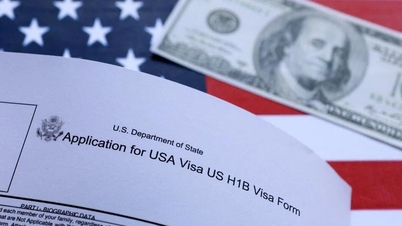


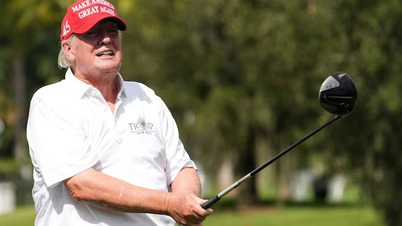
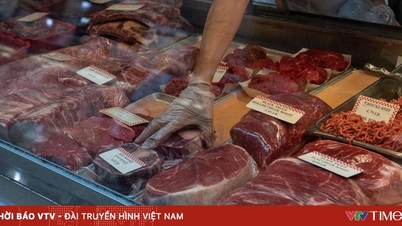






















![[Photo] Prime Minister Pham Minh Chinh receives United Nations Secretary-General Antonio Guterres](https://vphoto.vietnam.vn/thumb/1200x675/vietnam/resource/IMAGE/2025/10/25/1761390212729_dsc-1484-jpg.webp)

































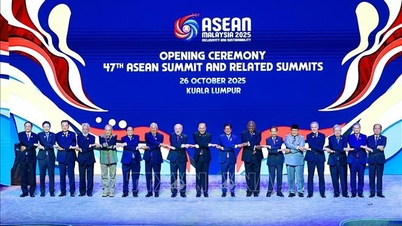


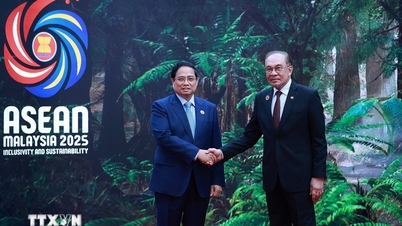


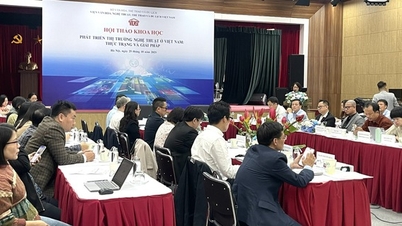


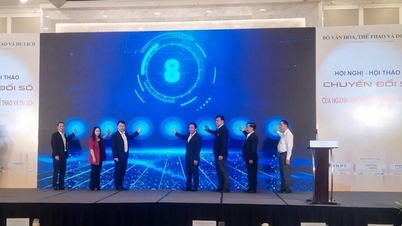

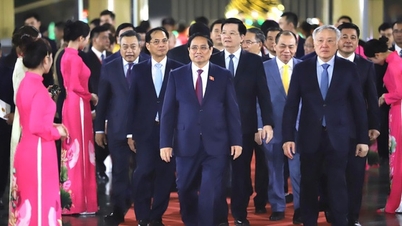
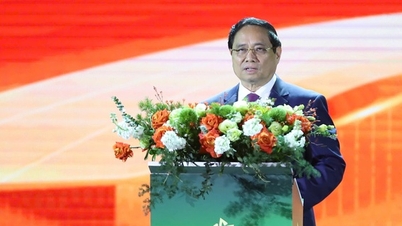

























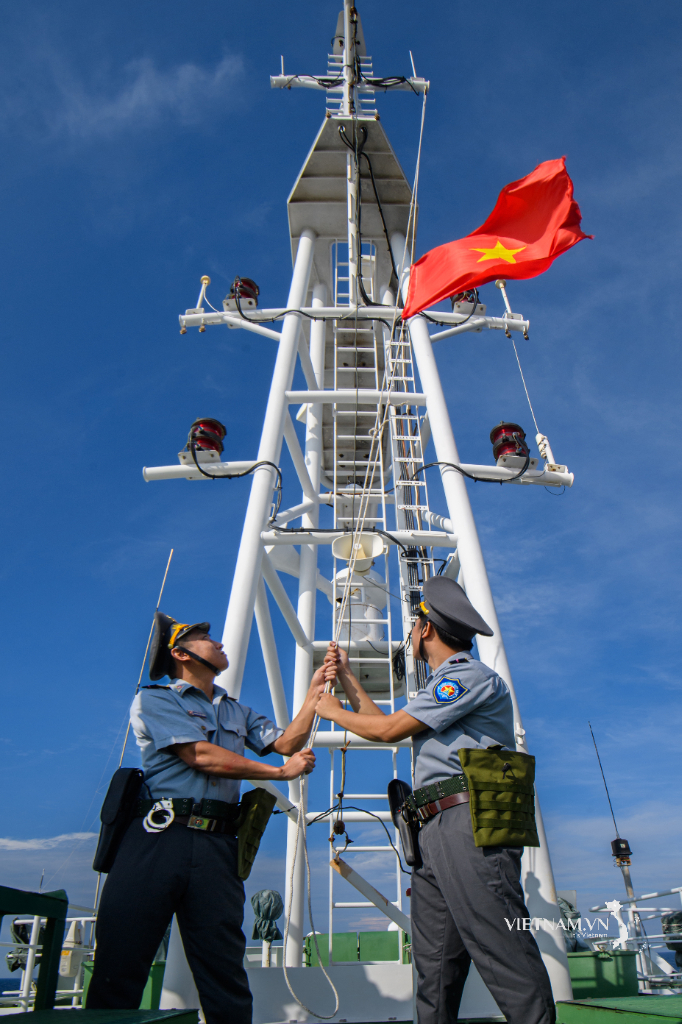
Comment (0)